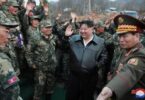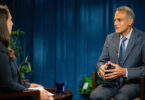BAGHDAD (Agencies): The December 27 rocket attack on the K-1 Air Base in Kirkuk, northern Iraq, which killed a US civilian contractor and injured four US servicemen and two Iraqi security officers, led to a dangerous escalation of tensions between the US and Iran.
Iraq’s military and intelligence community believe Daesh (ISIS), not Iran-affiliated Iraqi Shia Muslim militia group Khaitab Hezbollah, was responsible for the December 27, 2019 rocket attack on an Iraqi base which ultimately led the US to assassinate Revolutionary Guard Quds Force Commander Qasem Soleimani, the New York Times has reported, citing Iraqi military and intelligence sources.
“All indications are that it was Daesh,” Brig. Gen. Ahmed Adnan, chief of intelligence for Iraqi Federal police at the K-1 base, told the newspaper. Adnan pointed to three incidents in the area in the week and a half before the December 27 attack, saying his forces were aware of Daesh movements in the area.
“We as Iraqi forces cannot even come to this area unless we have a large force because it is not secure. How could it be that someone who doesn’t know the area could come here and find that firing position and launch an attack?” Adnan asked, pointing out that the launch zone was situated in a Sunni Muslim area of Kirkuk where Daesh attacks are prevalent. Brig. Gen. Amer Isa Ha-ssan, chief of staff of the Iraqi side of the K-1 Air Base, told NYT that he didn’t buy the US claims blaming Khaitab Hez-bollah. “The villages near here are Turkmen and Arab,” he said. “There is sympathy with Daesh there. Why do we resort to blaming Hezbollah or others?”
Iraqi intelligence warned US forces at K-1 about the danger of a possible attack on the base throughout November and December, including in a November 6 briefing indicating that Daesh was “endeavor[ing] to target K-1 base in Kirkuk by indirect fire (Katyusha rockets).” A similar report was delivered on December 25. Adnan said he warned the US again just hours before the December 27 rocket strike.
Col. Talib Madhloum al-Tamimi, an Iraqi Federal Police commander from the Kirkuk region, said he urged the US to fly a reconnaissance balloon over the base to prevent an attack from taking place, but that it was down for maintenance. Abu Ali al-Basri, director general of Iraq’s Intelligence and Counterterrorism, confirmed that the US did not consult with his agency before carrying out its ‘retaliatory’ attacks against five Khaitab Hezbollah bases across Iraq and Syria on December 29, which killed 25 militiamen and injured 55 more.
“They did not ask for my analysis of what happened in Kirkuk and neither did they share any of their information. Usually, they would do both,” al-Basri said.
After being informed by the US side about the impending strikes, Baghdad reportedly tried to talk Washington out of launching attacks on Khaitab Hezbollah, pointing out that the group hadn’t been present in Kirkuk since at least 2014, when the militia teamed up with the Iraqi and US militaries to fight the Daesh advance.
Lt. Gen. Bayati, who served as chief of staff in ex-prime minister Adel Abdul Mahdi’s government, said Baghdad had requested that the US side shared its intelligence, but was spurned. Iraqi officials also said that an examination of the Kia pickup truck found outside K-1 with 107 mm rockets fitted in its cab did not link it in any way to Khaitab Hezbollah.
Muhi, a spokesman for Khataib Hezbollah, denied involvement in the December 27 attack, and asked the US to “share” whatever supposed evidence it has about the group’s responsibility.
Unnamed US officials speaking to the NYT maintained that they had ‘solid evidence’ in the form of ‘multiple strands’ of intelligence confirming Khataib Hezbollah’s involvement in the K-1 attack, but still haven’t made this information public.
On the morning of January 3, Iranian IRGC Commander Maj. Gen. Qasem Soleimani was killed at Baghdad International Airport when the convoy he and Kataib Hezbollah leader Abu Mahdi al-Muhandis were riding in was struck by a missile fired by a US Reaper drone.






